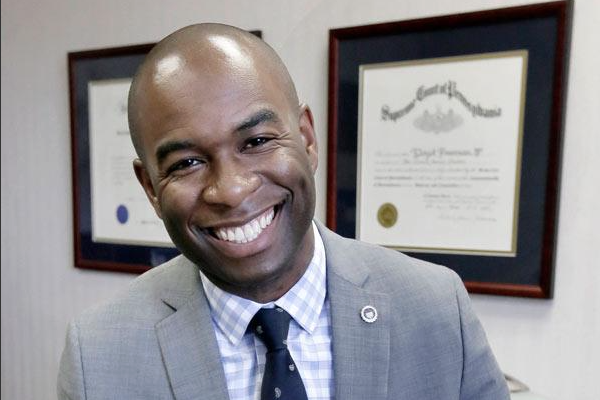
February 07, 2015
 User @PhillyNews/Twitter
User @PhillyNews/Twitter
South Jersey lawyer Lloyd Freeman says the workshops should be educational, not a gripe session
Though it would be expedient to regard the cases of Michael Brown, Eric Garner, Tamir Rice and many others as isolated incidents that don't reflect broader public trust in law enforcement, communities across the region are taking action not to leave this matter to chance.
The Philadelphia Inquirer reports that community leaders, ministers, and lawyers are working together to hold special workshops designed to educate members of the public on how to interact with law enforcement. The workshops will also review certain policing tactics, such as "Stop and Frisk", and the rights of citizens during encounters with police.
"We felt it was incumbent upon us to educate our community about their rights, given all the turmoil," South Jersey lawyer Lloyd Freeman said. "It seems like every six months, there is a news story about someone having a run-in with the police. This is something that everyone should know in case you are in this situation."
Some of the workshops in New Jersey have been planned as part of the Zeta Phi Beta sorority's "Get Engaged" campaign in partnership with the NAACP and local law enforcement officials. The first of these was set to take place on Saturday in Williamstown, while another is scheduled for February 28 in Woodbury. Other New Jersey workshops will be held in Camden and Willingboro. On Wednesday, Freeman will serve as moderator of a discussion at Rutgers-Camden School of Law, sponsored by a coalition of black lawyers called the Garden State Bar Association.
In Pennsylvania, meanwhile, Lower Merion Township will hold a community forum on race and policing this Sunday afternoon, Feb. 8, at Ardmore's P.A.L.M center, an event free and open to the public.
In general, similar workshops elsewhere in the country have been organized by civil rights groups and the American Civil Liberties Union, as with the NYCLU's trainings and workshops. Though their intent is econciliation, some still question whether the mission of improving relationships with police can be fulfilled without deeper context in workshop discussions.
"I hope it is a more uplifting message than 'stay out of jail' and 'police are the enemy,' " said Eugene O'Donnell, a professor at John Jay College of Criminal Justice. "It has to be done with context and balance."
Particularly since these workshops seek the attendance of young black males, the conversations that take place may need to deal substantially with how perceptions of racial profiling impact outcomes between police and minorities in law enforcement situations.
Minimally, educational workshops represent a step in the right direction to shift from hostility toward an effort to rebuild mutual understanding.
Read the full story here.